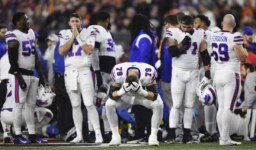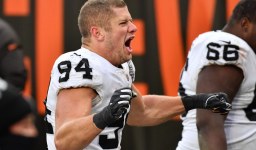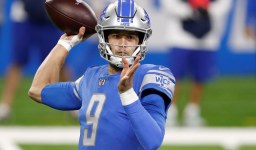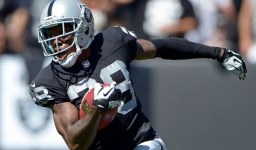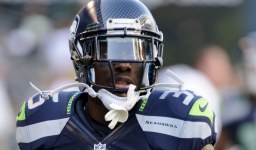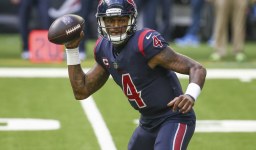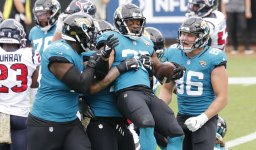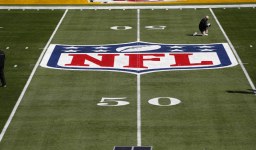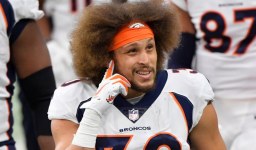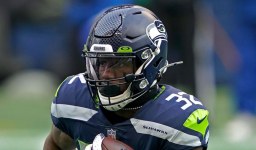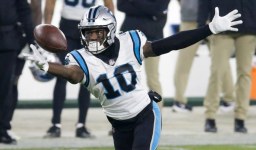New Orleans Saints quarterback Drew Brees attracted widespread criticism Wednesday when he offered his first public comments in the wake of George Floyd’s killing last week.
During an interview with Yahoo Finance, Brees reiterated his stance on how he will “never agree with anybody disrespecting the flag of the United States of America.” The star quarterback’s remarks drew a sharp response on social media across all sports, including from current Saints teammates and NBA superstar LeBron James.
“Let me just tell what I see or what I feel when the national anthem is played and when I look at the flag of the United States,” Brees said. “I envision my two grandfathers, who fought for this country during World War II, one in the Army and one in the Marine Corp. Both risking their lives to protect our country and to try to make our country and this world a better place.
“So every time I stand with my hand over my heart looking at that flag and singing the national anthem, that’s what I think about. And in many cases, that brings me to tears, thinking about all that has been sacrificed. Not just those in the military, but for that matter, those throughout the civil rights movements of the 60s, and all that has been endured by so many people up until this point.
“Is everything right with our country right now? No, it is not. We still have a long way to go. But I think what you do by standing there and showing respect to the flag with your hand over your heart, is it shows unity. It shows that we are all in this together, we can all do better and that we are all part of the solution.”
Brees quickly faced criticism and attempted to clarify his comments in an interview with ESPN.
“I love and respect my teammates, and I stand right there with them in regards to fighting for racial equality and justice,” Brees told the network. “I also stand with my grandfathers who risked their lives for this country and countless other military men and women who do it on a daily basis.”
In response to Brees, Saints safety Malcolm Jenkins posted an emotional video on social media that has since been deleted. In the video, Jenkins said he was “hurt” by Brees’ words and that they were “extremely self-centered.”
“Our communities are under siege and we need help,” Jenkins said. “And what you’re telling us is don’t ask for help that way, ask for it a different way. I can’t listen to it when you ask that way. We’re done asking, Drew. And people who share your sentiments, who express those, and push them throughout the world, the airwaves, are the problem.
“It’s unfortunate because I considered you a friend. I looked up to you. You’re somebody who I had a great deal of respect for. But sometimes you should shut the [expletive] up.”
Jenkins said the deleted video was made just before Brees reached out to him to discuss his comments, but the veteran defensive back still posted it “because it’s important for anyone who wants to consider themselves an ally to know how these words and actions affect those you want to help.”
Jenkins then deleted the original video and posted an updated one on Instagram, saying “even though we’re teammates, I can’t let this slide.”
Saints wide receiver Michael Thomas also took issue with his quarterback’s recent comments in a series of tweets and retweets, saying “he don’t know no better.”
“We don’t care if you don’t agree and whoever else,” Thomas wrote on Twitter. “How about that.”
On social media, James said kneeling during the national anthem has “nothing to do with the disrespect of [the United States flag] and our soldiers.”
Green Bay Packers quarterback Aaron Rodgers also weighed in on Brees’ comments, posting an image on Instagram of him locking arms with teammates.
“A few years ago we were criticized for locking arms in solidarity before the game,” Rodgers wrote. “It has never been about an anthem or a flag. Not then. Not now. Listen with an open heart, let’s educate ourselves, and then turn word and thought into action.”
Brees’ remarks Wednesday mirror comments he made in 2016, when he said he supported Colin Kaepernick’s desire to speak out against racial injustice and police brutality but disagreed with his method of kneeling during the national anthem.

